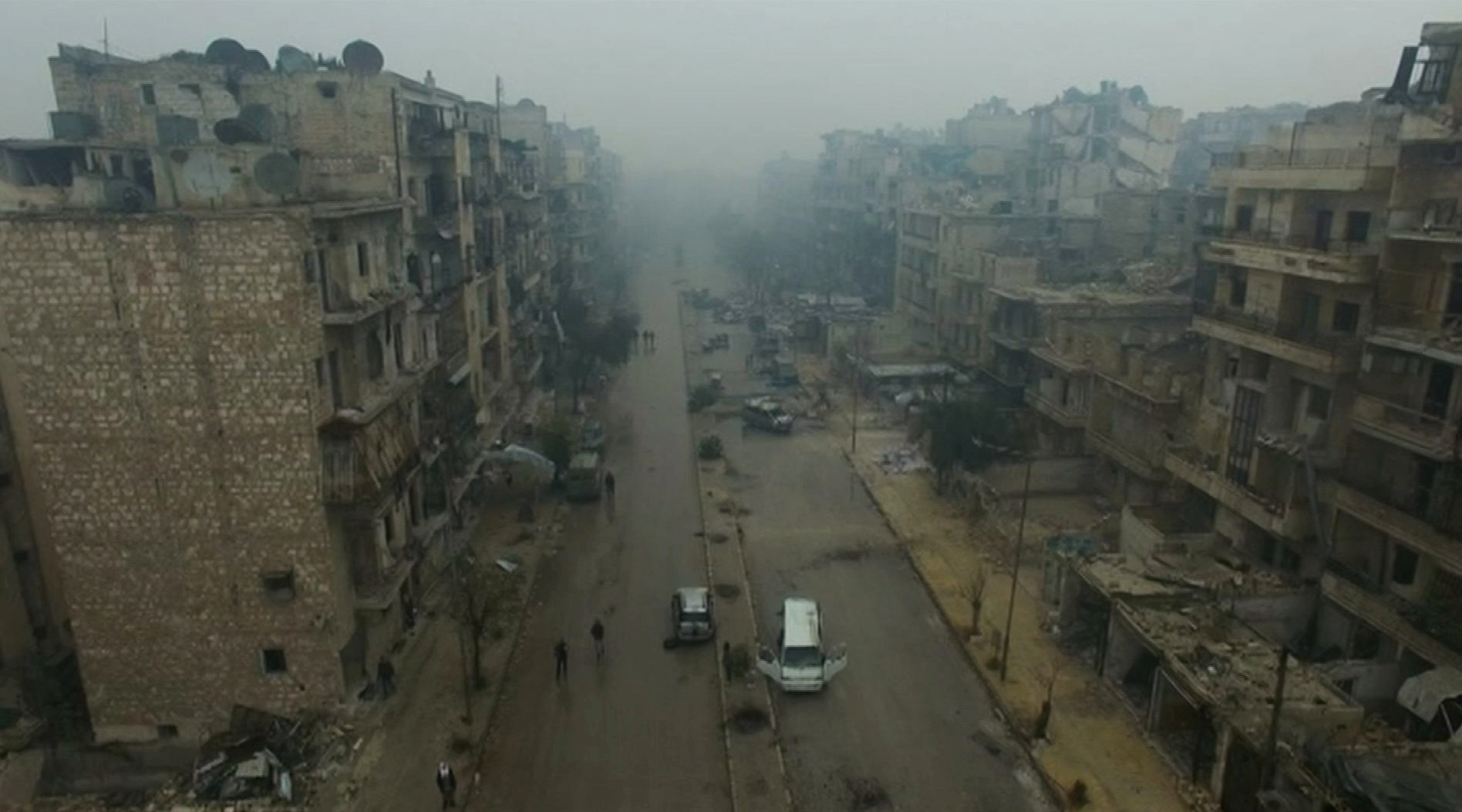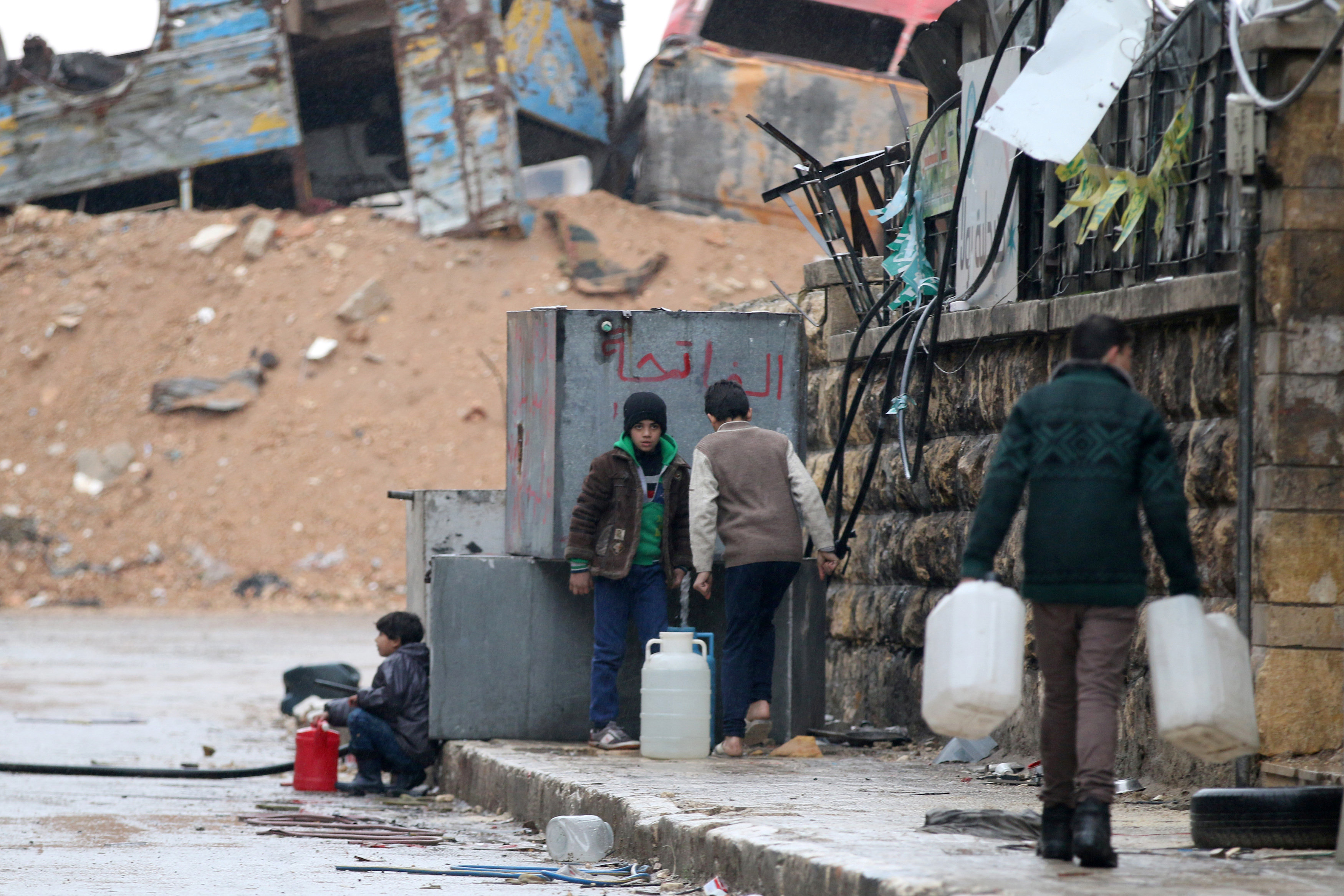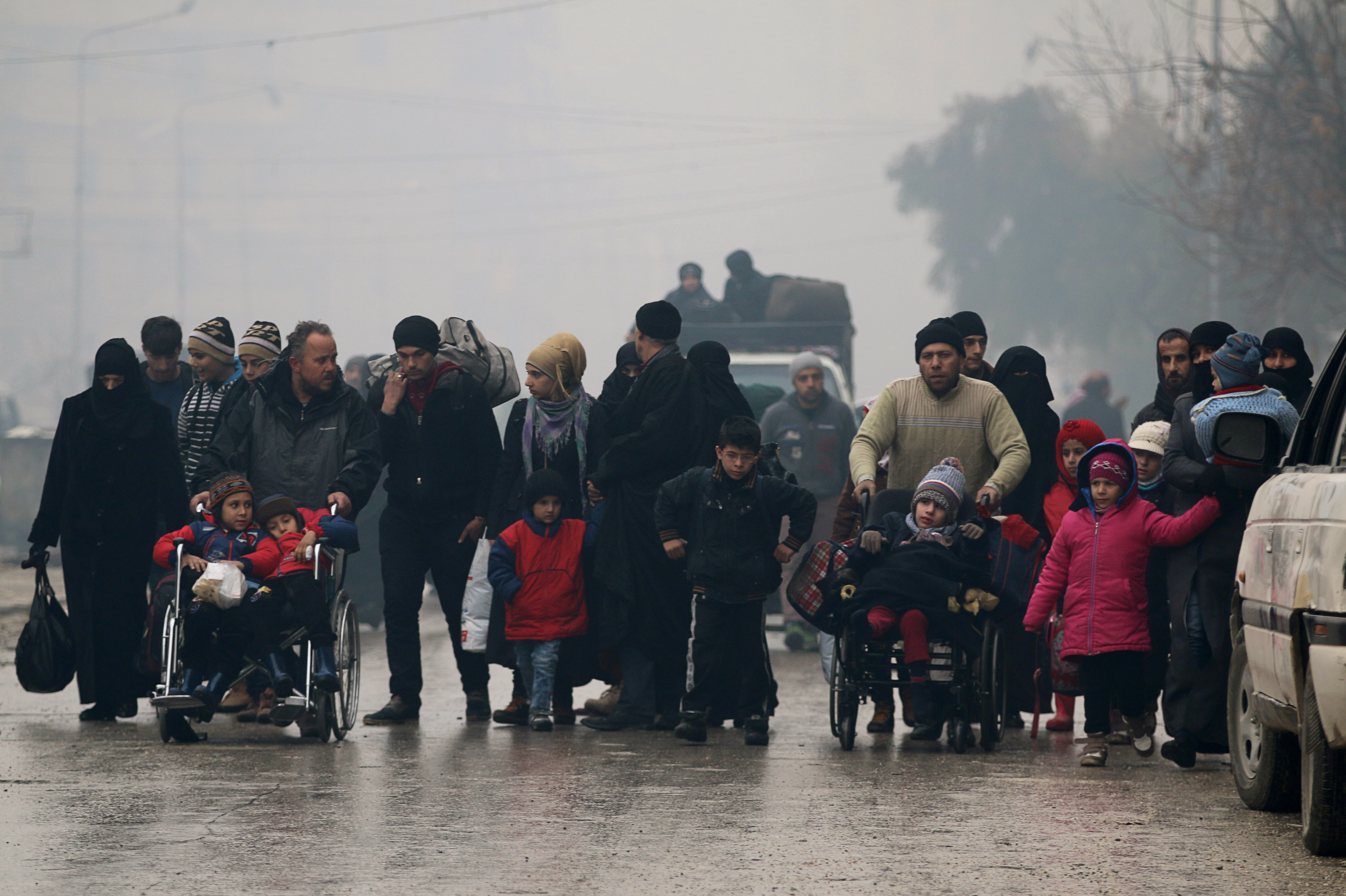
By Orhan Coskun and Ellen Francis
ANKARA/BEIRUT (Reuters) – Turkey and Russia have prepared an agreement for a ceasefire in Syria, Turkey’s foreign minister said on Wednesday, adding Ankara would not budge on its opposition to President Bashar al-Assad staying on as leader.
The comments from Mevlut Cavusoglu appeared to signal tentative progress in talks aimed at reaching a truce. While the insistence on Assad’s departure could complicate negotiations with his biggest backer Russia, another Turkish official did not rule out a transitional role for the Syrian president.
Russia, Iran and Turkey said last week they were ready to help broker a peace deal after holding talks in Moscow where they adopted a declaration setting out the principles any agreement should adhere to. Russia has said the next talks are set for Astana, the Kazakh capital.
“There are two texts ready on a solution in Syria. One is about a political resolution and the other is about a ceasefire. They can be implemented any time,” Cavusoglu told reporters on the sidelines of an awards ceremony at the presidential palace in Ankara.
He said Syria’s opposition would never back Assad.
“The whole world knows it is not possible for there to be a political transition with Assad, and we also all know that it is impossible for these people to unite around Assad.”
Last week, Russia’s foreign minister said Russia, Iran and Turkey had agreed the priority in Syria was to fight terrorism and not to remove Assad’s government – comments that suggested a shift by Turkey, which has long pushed for Assad’s ouster.
Sources told Reuters that, under an outline deal between the three countries, Syria could be divided into informal zones of regional power and Assad would remain president for at least a few years.
A senior Turkish government official said on Wednesday that future discussions would likely hash out Assad’s role.
“We put importance on the establishment of a transitional government and that it would be one that meets the demands of the Syrian people,” the official said. “Whether or not Assad will take place in the government will be discussed in the coming period.”
Assad will not be attending the talks in Astana, which are likely to be held at the undersecretary level “at most”, the official added.
STICKING POINT
Turkey’s state-run Anadolu Agency said earlier on Wednesday Moscow and Ankara had agreed on a proposal towards a general ceasefire. The Kremlin said it could not comment on the report.
A Syrian rebel official said meetings between Ankara and rebel forces were expected to continue this week, but he could not confirm whether a final ceasefire agreement had been reached.
The rebel official told Reuters a major sticking point was that Russia wanted to exclude the Damascus countryside from the ceasefire, which the rebels were refusing to do.
A second rebel official told Reuters there was no agreement yet from the side of the rebel factions. “The details of the ceasefire deal have yet to be officially presented to the factions,” he said.
Russia’s foreign minister said on Tuesday the Syrian government was consulting with the opposition ahead of possible peace talks, while a Saudi-backed opposition group said it knew nothing of the negotiations but supported a ceasefire.
Russian officials have said invitations to participants for the Astana talks have not been sent out and the time has yet to be decided.
The talks would not include the United States and would be distinct from separate, intermittent U.N.-brokered negotiations.
In Berlin, a Foreign Ministry spokesman said Germany supported any effort to solve the conflict by political means, adding the United Nations also had an import role to play.
Russia’s Foreign Ministry said on Wednesday U.N. Special Envoy Staffan de Mistura had spoken by phone with Foreign Minister Sergei Lavrov and supported the efforts to establish a ceasefire and new peace talks.
The Syrian opposition’s main political body on Tuesday urged rebel groups to cooperate with “sincere regional efforts” to reach a ceasefire deal but that it had not been invited to any conference, referring to the Kazakhstan meeting.
The Turkish military said on Wednesday it had “neutralised” 44 Islamic State militants and wounded 117 as part of its operation in the northern Syrian town of al-Bab.
Rebels supported by Turkish troops have laid siege to al-Bab for weeks under an operation to sweep the Sunni hardliners and Kurdish fighters from its Syrian border.
(Additional reporting by Tuvan Gumrukcu and Tulay Karadeniz in Ankara, Humeyra Pamuk in Istanbul, Denis Pinchuk in Moscow and Madeline Chambers in Berlin; writing by David Dolan; editing by Andrew Roche and John Stonestreet)

















